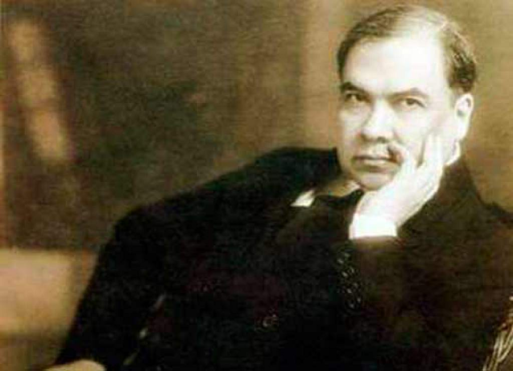
Rubén Darío (aka Félix Rubén García Sarmiento) was a Nicaraguan poet, journalist and diplomat during the late 1800s and early 1900s, known for being the leader of the Modernismo movement. His works had a great influence in the Spanish literature of the 20th century, and he is known for being heavily innovative with his use of meter and rhythm. The version of the poem I share here was edited and translated by Stanley Appelbaum.
Love Your Rhythm
“Love Your Rhythm” (or “Ama Tu Ritmo”) is a fantastic example of both Darío’s use of rhythm and his belief in the Pythagorean concept of the unity of life. The Pythagorean concept relies on the idea that there is harmony at the heart of the universe. “Love Your Rhythm” dives into the harmony of the universe at large, as well as the “universes” contained within individuals. The short, four-stanza poem begins with the praise of personal exploration:
“Love your rhythm and rhythm your actions
in obedience to its law, and your poetry as well;
you are a universe of universes,
and your soul a fountain of song.
The celestial unity that you presuppose
will make varied worlds germinate within you,
and, as your scattered poems resound,
philosophize like Pythagoras among your constellations.”
The final lines of the first stanza, “you are a universe of universes/and your soul is a fountain of song,” seem to support the idea that humans contain much within themselves worth exploring. The second stanza continues this theme, with its first line “The celestial unity that you presuppose” driving to a deeper connection between the interior world of individuals and the exterior universe.

Rubén Darío
Credit: Hispanicny.com
And with that, Rubén Darío takes us into the second half of his poem. These two stanzas describe the geometric beauty and natural harmony of the exterior universe. The poem finishes with a bold command to eschew indifference and accept the truth of the oneness of existence.
“Listen to the divine rhetoric
of the bird in the air, and divine
the geometric radiation of the night;
Slay silent indifference
and string pearl on crystalline pearl
there where truth pours out her urn.”
The message of “Ama Tu Ritmo” appears to be an encouragement for self-reflection and self-communion, both essential factors of personal exploration. In doing so, one will find the harmonies that naturally exist within oneself. This will not only be beneficial in finding peace and connection in one’s inner world but also function as a means to connect to the greater harmony, the greater unity, of the universe.

 “Ama Tu Ritmo/Love Your Rhythm” by Rubén Darío
“Ama Tu Ritmo/Love Your Rhythm” by Rubén Darío


 Our Annual Seven Holiday Gifts for Someone Who Is Grieving, 2024 Edition
Our Annual Seven Holiday Gifts for Someone Who Is Grieving, 2024 Edition
 “Making Mobiles” by Karolina Merska
“Making Mobiles” by Karolina Merska
 “Hands Up to the Sky” by Michael Franti & Spearhead
“Hands Up to the Sky” by Michael Franti & Spearhead














